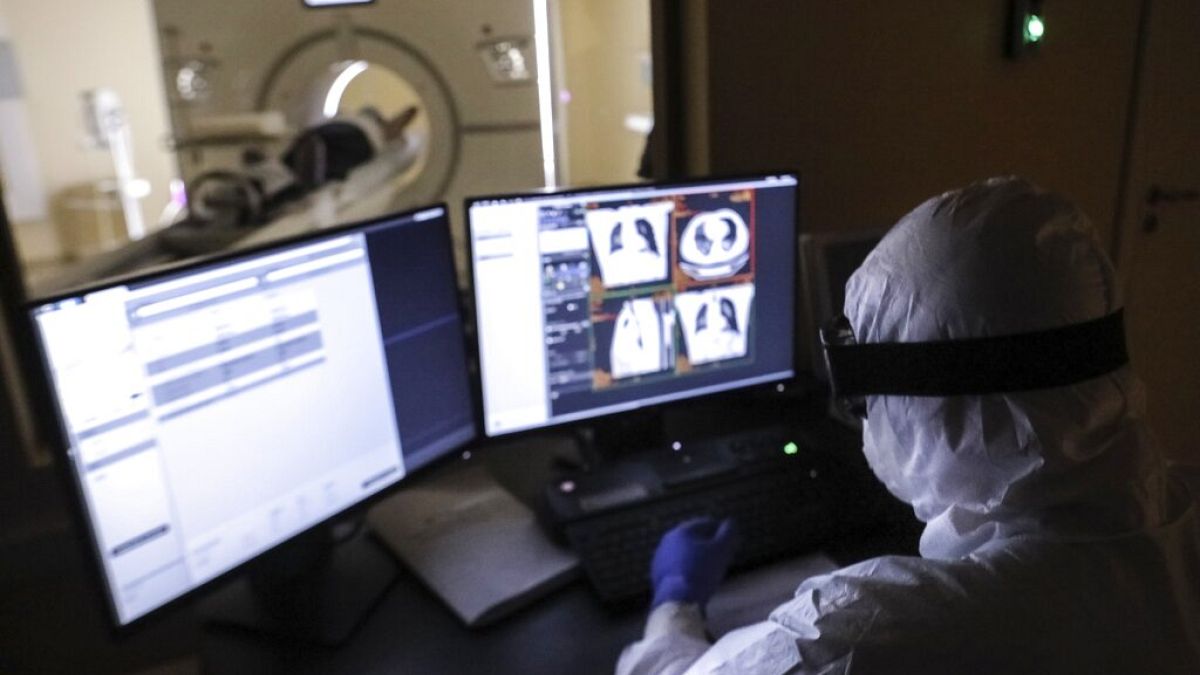Europe losing cancer remedy tech race to US and China – study

Despite hosting more oncology start-ups, Europe is lagging in the development of cancer technologies, losing the competitive edge in some promising research fields to the US and China, according to a new report.
A new study published today by the European Patent Office (EPO) reveals how Europe is lagging behind the US and China in the three fastest-growing fields of cancer research.
While patenting activity for high-tech cancer remedies has surged in the US and China, Europe is struggling to keep pace, witnessing a decline in market share during both the 2010-2015 and 2016-2021 periods.
The most significant decline for EU-27 applicants was in cellular immunotherapy (-6.2%), while the smallest drop was in healthcare informatics and non-coding nucleic acids (-4%).
By contrast, US patent applicants maintained or increased their shares in most high-growth fields, and Chinese applicants saw substantial growth across all cancer-related technology sectors.
Japan and South Korea have maintained a relatively stable position despite growing competition from China, which is gaining market share at Japan’s expense, particularly in healthcare informatics and image analysis, according to the report.
The study findings come just a week after the presentation of the EU’s Competitiveness Compass, a strategic initiative aimed at strengthening Europe’s ability to compete with other leading economies.
“In light of Mario Draghi’s report on the future of European competitiveness, this study serves as a wake-up call for Europe’s oncology innovation system,” said EPO President António Campinos.
He added that as cancer-fighting technologies evolve rapidly and in unpredictable ways, Europe must respond to maintain its competitive edge in healthcare innovation.
More start-ups: A missed opportunity?
Despite lagging in high-growth cancer technologies, Europe—including non-EU countries such as the UK and Switzerland—boasts the highest number of oncology-related start-ups, with approximately 1,500 entities compared to 1,325 in the US.
Among EPO member states, the UK leads with 290 start-ups, followed by France with 246, Germany with 208, and Switzerland with 151. However, while Europe has more start-ups at seed and early growth stages than the US, it struggles to scale these up.
Nearly 40% of US cancer-related start-ups have reached the late growth stage, compared to just 24% in the EU and slightly under 27% in other EPO member states.
“Europe’s vibrant oncology start-up ecosystem is a bright spot, but these companies need investment and support to scale their inventions successfully,” said Campinos.
In the EU, 41.6% of oncology start-ups remain in the early growth stage, while 34.7% are still in the seed stage, highlighting the challenges they face in scaling up.
Most promising fields in cancer tech
Patenting activity in cancer-related technologies saw a significant increase between 2015 and 2021, following a period of stagnation from 2010 to 2015.
This recent growth was primarily driven by US applicants, who consolidated their dominance in cancer-related innovation, accounting for 44.6% of all cancer-related international patent families (IPFs) between 2010 and 2021.
Chinese applicants, with a 9% share over the same period, significantly increased their patent filings, surpassing the EU-27 in 2021 with more than 2,000 IPFs that year.
Europe remains a key player, with EU applicants generating more than 17,800 IPFs between 2010 and 2021, alongside an additional 7,500 IPFs from other EPO member states, collectively representing 23.9% of global cancer-related IPFs over the same period.
The study also identifies the most promising areas for cancer technology. Among these are relatively new fields such as healthcare informatics, image analysis, liquid biopsies, immunotherapy with antibodies, cellular immunotherapy, immunotherapy with small molecule immunomodulators, non-coding nucleic acids and gene therapy.
Well-established fields such as cytokine-based immunotherapy, oncolytic viruses, photodynamic therapy, and tumour-treating fields continue to be important. Alternative treatments and preventive measures, such as plant and animal tissue extracts, are also gaining traction.
Related
EU denies picking on US tech giants, says US also…
BRUSSELS (Reuters) - Europe's new tech rule aims to keep digital markets
€450M to drive green data infrastructure, the next startup hub,…
This week we tracked more than 70 tech funding deals worth over €1.3 billion, and over 5 exits, M&A transactions, rumours, an
European tech sector poised for stronger 2025, says Monument Group;…
Let’s kick things off with tech! Monument Group’s Zac Williams expects a big spike in European technology deals in 2025, as the region offers more appealing
Women still marginalised in Europe’s Tech Ecosystem
European startups founded or co-founded by women raised €10.2B in 2024 across nearly 2,000 transactions, according to Pitchbook’s latest study. This repr










